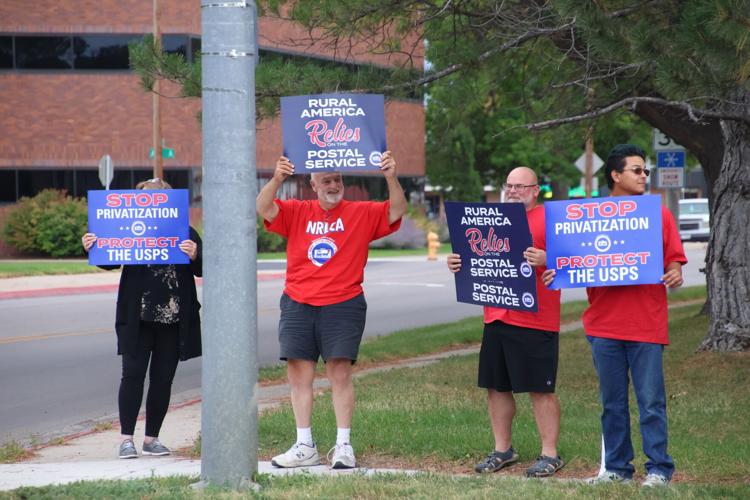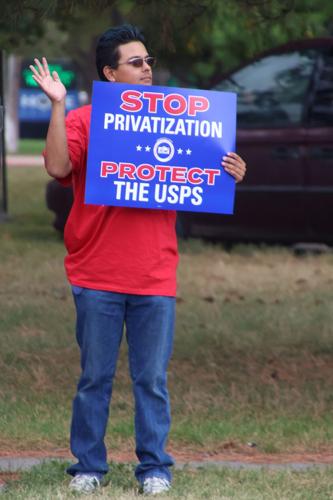Gering-based rural postal carrier Roger McDonald and others rallied Sunday, Sept. 14, in opposition of possible privatization of the United States Postal Service.
They held signs at the Scottsbluff Post Office at the corner of 20th Street and Avenue B.
Rallies in support of protecting the Postal Service have happened nationwide. President Donald Trump has mentioned he wanted to privatize the Postal Service; however, there have been no official statements that he would do so in recent months.
According to a website supporting the postal drivers’ rallies, protectpostalservice.com, mentions a memo from Wells Fargo that presents a privatization plan that would “sell off the most profitable parts of the Postal Service; raise prices on rural families by up to 140%; slash union jobs and eliminate good benefits; and strip bargaining rights from postal workers who serve their communities every day.”
People are also reading…
When Postmaster General David Steiner was appointed this summer, he said he had no intention of letting the USPS become privatized.
One of the main issues with privatization that the website and McDonald mention is that delivery to rural customers would likely be dropped due to the cost.
“This would be an enormous loss to these people,” McDonald said last week.
He mentioned a retired couple to whom he delivered Social Security checks and medication supplies in rural Gering.
“Just over the last week,” McDonald said, “I delivered a bunch of stuff because he’s on dialysis, so I’ve got to deliver stuff to him. Otherwise his wife’s got to drive into town, pick all this stuff out, take it back out and cart it into the house.”
McDonald’s route spans 150 miles of road in the area from Melbeta to Carter Canyon, he said.
Many in attendance on Sunday hold similarly sized routes in rural Scotts Bluff County, except for Kyle Stoner, who is the Nebraska president of the Rural Letter Carriers Association.
Stoner’s route is in Waverly, Nebraska. He used to have a 95-year-old man on his route who had to walk half a block to get to his mailbox.
“I thought he was going to kill himself because he couldn’t walk very good,” Stoner said. “So I told him, ‘Stop coming down here. I’ll just go to your door when I turn around.’”
Stoner added that his whole town route is paved and is approximately 10 miles.
“I used to stop at his house every day on my lunch break,” he said, “and we’d just talk.”
Stoner isn’t the only one who has stories like that. The carriers worry about what will happen to the elderly people on their rural routes, not just physically but also emotionally, if they lose that connection to other people.
“What happens to my customers that I’m delivering 25 miles to?” McDonald asked. “What happens to them if this happens? That’s what I lose sleep over.”



















